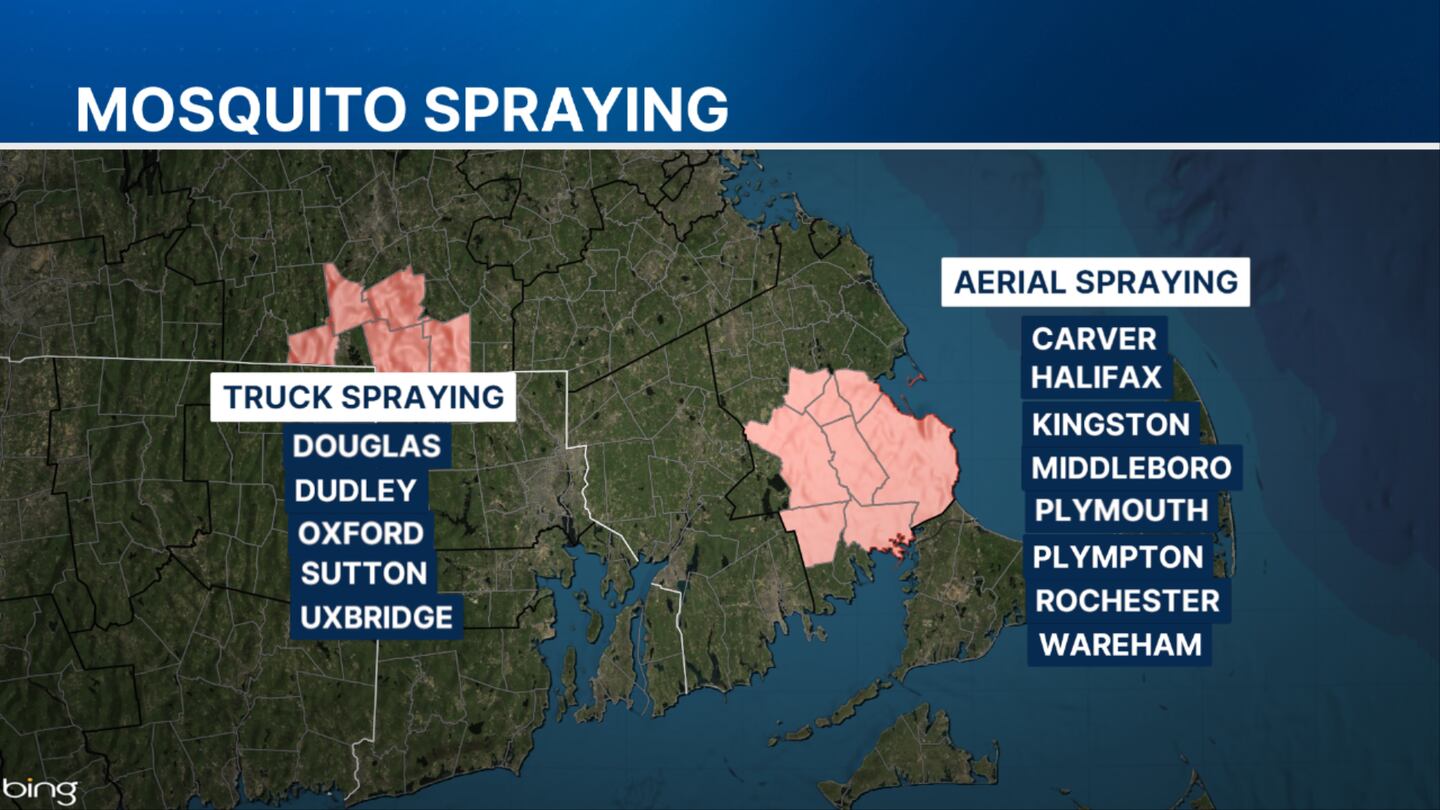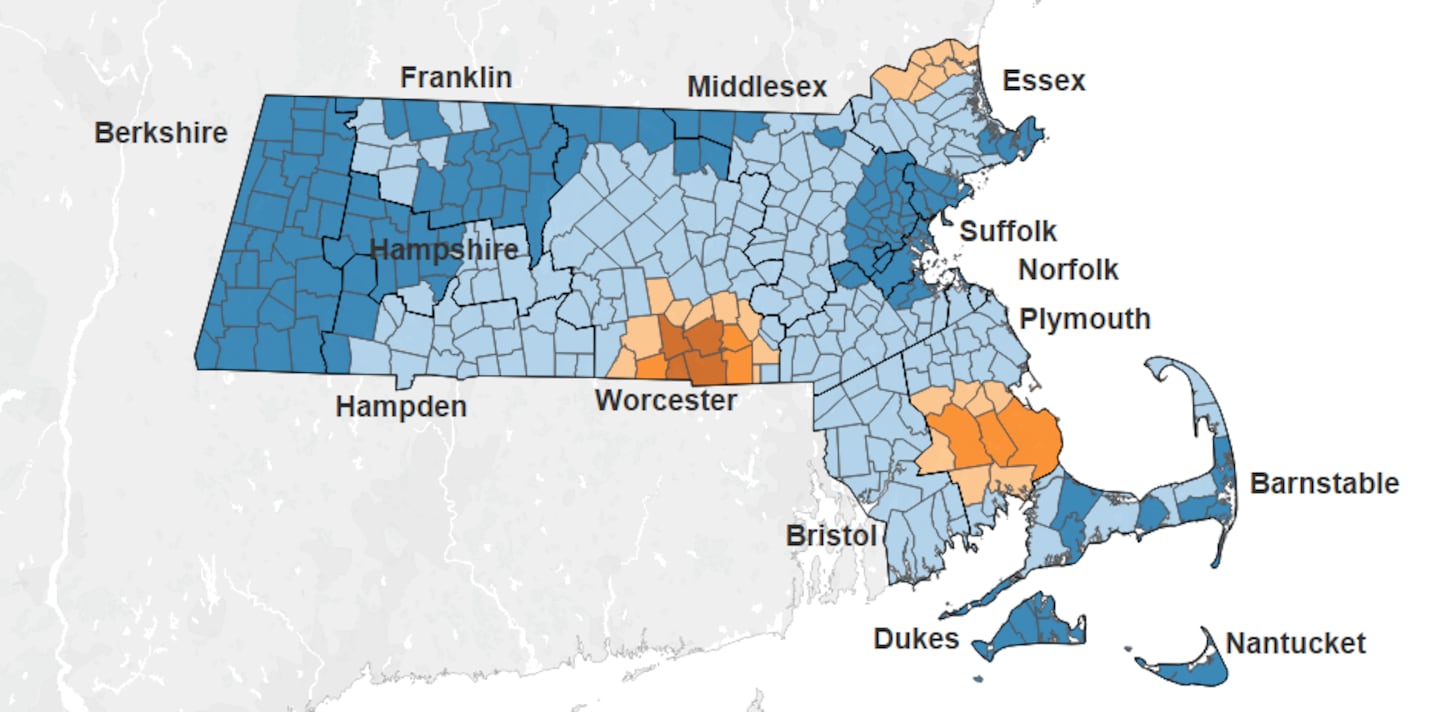PLYMOUTH, Mass. — Massachusetts plans to begin spraying for mosquitoes in more than a dozen communities on Tuesday amid a critical risk for the rare but deadly Eastern Equine Encephalitis virus.
Ten communities in Plymouth and Worcester counties were raised to high or critical risk for EEE after state health officials announced last week that a man in his 80s had caught the disease, the first human case found in Massachusetts since 2020.
Aerial and truck-mounted ground spraying will be used in the designated risk zones starting Tuesday evening. Officials noted that it will continue for additional days, and the timeline is subject to change due to upcoming variable weather patterns.
Aerial spraying will be conducted in Carver, Halifax, Kingston, Middleboro, Plymouth, Rochester, and Wareham. Truck-mounted ground spraying will happen in Douglas, Dudley, Oxford, Sutton, and Uxbridge.
State and local health officials urged people in those towns to avoid the peak mosquito biting times by finishing outdoor activities by 6 p.m. until Sept. 30 and then by 5 p.m. after that, until the first hard frost.
They also recommend that people across Massachusetts use mosquito repellents when outdoors and drain any standing water around their homes.
In Oxford, town officials approved a curfew last week due to EEE risk.
Jennifer Callahan, Oxford’s town manager, wrote in a memo that the family of the man who caught the virus in mid-August had reached out to her office.
“They want people to be aware this is an extremely serious disease with terrible physical and emotional consequences, regardless if the person manages to live,” Callahan wrote.
She said the infected person had often recounted to his family how he never got bitten by mosquitoes. But just before he became symptomatic, he told them he had been bitten. She said the man remains hospitalized and is “courageously battling” the virus.
In Plymouth, town officials said that all public parks and fields will be closed daily from dusk until dawn in response to the town’s high-risk status.
The presence of the virus in Massachusetts this year was confirmed last month in a mosquito sample, and has been found in other mosquitoes across the state since then. In a 2019 outbreak, there were six deaths among 12 confirmed cases in Massachusetts. The outbreak continued the following year with five more cases and another death.
There are no vaccines or treatments for EEE.
The U.S. Centers for Disease Control and Prevention says that although rare, EEE is very serious and about 30% of people who become infected die. Symptoms include fever, headache, vomiting, diarrhea and seizures.
People who survive are often permanently disabled, and few completely recover, Massachusetts authorities say. The disease is prevalent in birds, and although humans and some other mammals can catch EEE, they don’t spread the disease.
The CDC says only a few cases of EEE are reported in the U.S. each year, with most infections found in the eastern and Gulf Coast states.
RELATED:
Download the FREE Boston 25 News app for breaking news alerts.
Follow Boston 25 News on Facebook and Twitter. | Watch Boston 25 News NOW
©2024 Cox Media Group










